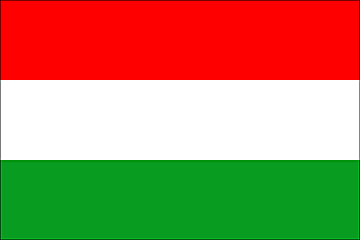
Birthplace of our industry’s industrious globetrotting photographer ‘FUBAR’ JFK, Hungary came to be regarded as one of the most prosperous emerging European countries after the fall of communism back in 1989.
Indeed, my initial reaction after having visited it for the first time was that I was experiencing a dose of Übercapatalism, with well-known Brands competing for attention in the newly built shopping temples that would put many in richer countries to shame, together with casinos in practically every neighbourhood. I recall thinking that Lenin must me turning in his grave.
However, it would appear that Hungary’s fall in light of the global credit crisis has been just as swift as its rise, and it recently became the first European Union country to finalise an emergency rescue by securing $25 billion from the International Monetary Fund to avoid it going bankrupt.
Hungary has a population of about 10 million people, 42% of which have access to the internet at this time.
Pre-credit crunch, Hungary had the fifth largest payment card market in Central and Eastern Europe in terms of cards in issued. However, both the issue and use of credit cards are expected to slow down considerably this new era of austerity, making phone billing practically the only viable billing mechanism if you are to continue making money from such countries.
Indeed, Hungary was one of the first ex-communist countries to liberalise its telecoms sector and introduce pay-per-minute and pay-per-call premium rate phone billing, with rates to up to FL720 per minute/call billable. That’s about US$3.57 as I write, but this figure will probably decrease as the value of the Forint continues to tumble.
We serve the less expensive FL288/Min numbers to Pay-per-minute Hungarian surfers, and FL 432/Min. ones to all pay-per-access customers, all in their native language of Hungarian - considered to be one of the most difficult languages for speakers of English to learn well.
Hungary was one of the most popular tourist destinations in the world in the past decade, with its capital Budapest widely regarded as one of the most beautiful in the world. And as any red-blooded male who has visited there can testify, its women are not too shabby either!
The countless models in Budapest’s numerous sex-clubs bear witness to this, with a red-light area to rival that of Amsterdam. Sex sells, and Budapest knows it.
Another thing that struck me whilst I was there last time was the amount of couples openly kissing one another. Sign of a wonderful place I thought, and look forward to one day returning to this amorous country.




















